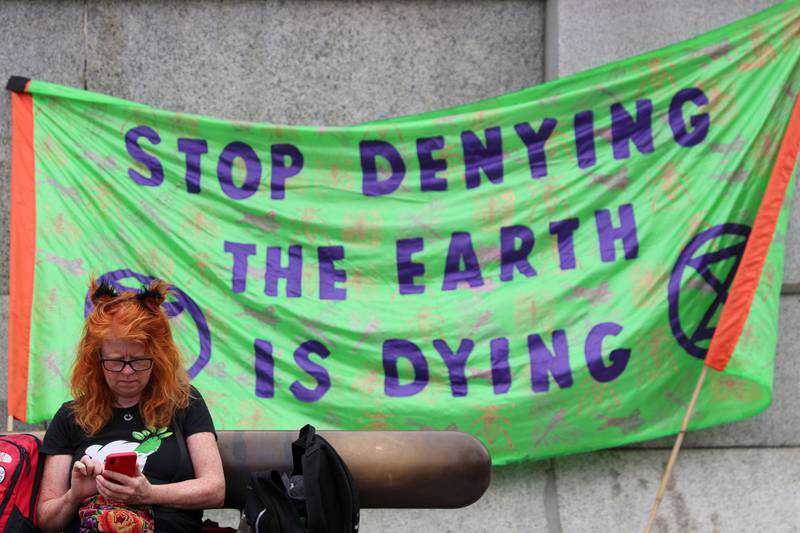World leaders urged to avert 'catastrophic health risk' posed by climate change
06 September, 2021

World leaders have been urged to address climate change and the danger it poses to public health in an editorial published by more than 200 leading journals.
The editorial, published on Monday by the BMJ and other prestigious health journals, says much more must be done to avert a climate catastrophe.
Extreme temperatures and destructive weather events have increased in frequency in recent decades due to climate change, and disproportionately affect the world's most vulnerable people.
The editorial says global warming has resulted in heat-related deaths among people aged over 65 increasing by more than 50 per cent.
It has also contributed to severe health conditions such as dehydration and renal function loss, skin cancers and tropical infections.
Global heating has also contributed to a decline in world yield potential for major crops, falling by between 1.8 per cent and 5.6 per cent since 1981, causing under-nutrition in populations.
"Thriving ecosystems are essential to human health and the widespread destruction of nature, including habitats and species, is eroding water and food security and increasing the chance of pandemics," the authors say.
"Allowing the consequences to fall disproportionately on the most vulnerable will breed more conflict, food insecurity, forced displacement, and zoonotic disease, with severe implications for all countries and communities.
"As with the Covid-19 pandemic, we are globally as strong as our weakest member."
The authors of the study published the piece before the UN General Assembly next week, one of the last international meetings taking place before the Cop26 climate conference in Glasgow, Scotland, in November.
Thousands of world leaders will gather at Cop26 to discuss steps to ensure carbon neutrality by 2050 and keep global warming to 1.5°C above pre-industrial levels, a target set under the Paris Agreement that was adopted by 195 countries in 2015.
The editorial has urged a radical redesign by governments of transport systems, cities, production and food distribution to help reach the target.
"To achieve these targets, governments must make fundamental changes to how our societies and economies are organised and how we live," it said.
"The current strategy of encouraging markets to swap dirty for cleaner technologies is not enough."
Wealthy nations, in particular, must help to ease the effects of climate change and fund initiatives similar to those used to fight the Covid-19 pandemic.
The authors urged richer countries to "go beyond their outstanding commitment to provide $100 billion a year and increase contributions beyond 2025".
"The greatest threat to global public health is the continued failure of world leaders to keep the global temperature rise below 1.5°C and to restore nature," they said.
"Urgent, society-wide changes must be made and will lead to a fairer and healthier world.
"We, as editors of health journals, call for governments and other leaders to act, marking 2021 as the year that the world finally changes course."
The scientific health journals publishing the editorial include The BMJ, The Lancet, the New England Journal of Medicine, the East African Medical Journal, the Chinese Science Bulletin, the National Medical Journal of India, the Medical Journal of Australia, and 50 BMJ specialist journals.
Source: www.thenationalnews.com
TAG(s):
